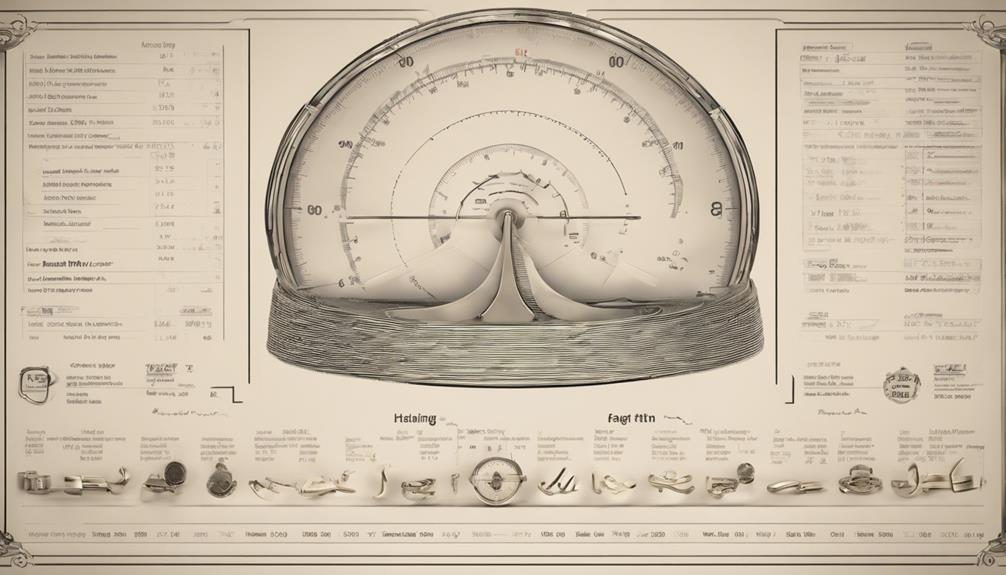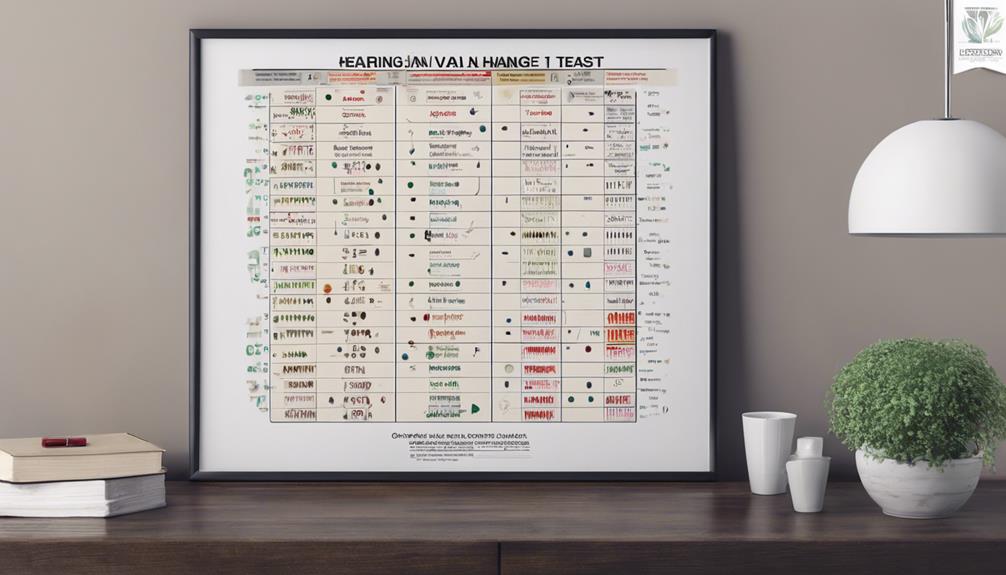Did you know that tinnitus is among the top disabilities associated with military service for veterans?
Understanding how VA assigns disability ratings for tinnitus and hearing loss can be crucial for veterans navigating the compensation process.
From the intricacies of rating systems to the impact of secondary conditions, exploring these aspects can shed light on the complexities of VA disability evaluations for auditory-related issues.
Key Takeaways
- VA assigns a 10% disability rating for tinnitus in most cases.
- Hearing loss can receive ratings from 0% to 100% based on severity.
- Secondary conditions like vertigo and mental health issues may be associated.
- VA rates tinnitus and hearing loss separately, considering their impact on daily life.
Causes of Tinnitus and Hearing Loss
Exposure to loud noises, head and neck injuries, ear infections, and age-related hearing loss are common causes of tinnitus and hearing loss. In veterans, combat noise exposure, blasts, firearms, machinery, and hazardous duty can lead to hearing impairments. Inner ear damage, nerve issues, or abnormalities in the auditory pathways contribute to both tinnitus and hearing loss. Conditions like Meniere's disease, earwax blockage, or vascular disorders affecting blood flow in the head and neck may result in tinnitus. Ototoxic medications, genetic factors, infections, and autoimmune diseases impacting the auditory system can cause hearing loss.
When assessing tinnitus causes, it's crucial to consider the intricate nature of the auditory system disorders. Whether it be from acute trauma like blasts and firearms, chronic exposure to loud noises, or the effects of aging on hearing capabilities, understanding the underlying reasons for tinnitus and hearing loss is fundamental in providing accurate diagnosis and appropriate management strategies to support individuals affected by these conditions.
Establishing Service Connection for Conditions

When establishing service connection for conditions such as tinnitus and hearing loss in veterans, it's imperative to provide compelling evidence linking the current diagnosis to the individual's military service experience. To qualify for VA disability compensation, veterans must demonstrate an in-service event, current diagnosis, and nexus connecting their condition to their time in the military.
This process involves meeting specific service connection requirements, which include proving the event, diagnosis, and nexus to military service. Essential evidence such as military records, medical reports, and expert opinions play a crucial role in establishing this connection for tinnitus and hearing loss.
Additionally, diagnosing hearing loss accurately demands specialized tests conducted by a licensed audiologist to determine the severity and impact on the individual's daily functioning. Connecting tinnitus or hearing loss to military service often necessitates providing documentation of exposure to loud noises or combat situations during active duty.
VA Disability Ratings for Tinnitus
The VA assigns a disability rating of 10% for tinnitus in most cases, irrespective of the specific tinnitus-related circumstances. This rating is outlined in the Diagnostic Code under the Tinnitus VA section, often indicated by a Roman numeral designation.
The severity of the condition is considered when determining the disability for VA purposes. While the standard rating is 10%, there are instances where higher ratings may apply, especially if the tinnitus is associated with hearing loss stemming from an underlying condition.
To establish the link between tinnitus and the need for disability compensation, a medical nexus provided by a state-licensed audiologist or another qualified medical professional is crucial.
It's important to note that the VA may make adjustments to the current rating system for tinnitus in the future, but as of now, most veterans with tinnitus receive a 10% disability rating.
VA Disability Ratings for Hearing Loss

After discussing VA Disability Ratings for Tinnitus, it's essential to understand how the VA assesses hearing loss for disability compensation. VA rates hearing loss on a scale from 0% to 100%, with an average rating typically at 10%. Here are key points to consider regarding VA Disability Ratings for Hearing:
- Individual Ear Ratings: Hearing loss can be rated for each ear separately, but the final disability rating usually reflects the combined hearing loss in both ears.
- Pure Tone Threshold Tests: The severity of hearing loss is determined using pure tone threshold tests to establish the appropriate disability rating.
- Severity Levels: Veterans with severe hearing loss may receive disability ratings ranging from 30% to 50%, depending on the extent of their impairment.
- Separate Ratings: Hearing loss and tinnitus are rated separately by the VA, with tinnitus commonly rated at 10% disability.
Understanding the VA's Rating System for hearing loss is crucial for service members seeking Disability for Hearing Loss through the Department of Veterans Affairs.
Secondary Conditions Associated With Tinnitus and Hearing Loss
Secondary conditions associated with tinnitus and hearing loss encompass a range of physical and psychological challenges that can significantly impact veterans' daily lives. These secondary conditions can include vertigo, balance issues, and hyperacusis, exacerbating the difficulties already posed by tinnitus and hearing loss. Moreover, mental health conditions such as anxiety, depression, and PTSD are commonly linked to tinnitus, further complicating the well-being of affected individuals. Hearing loss can lead to social isolation, communication difficulties, and a decreased quality of life, affecting relationships and overall functioning. Veterans experiencing tinnitus and hearing loss may also encounter sleep disturbances, concentration problems, and irritability, all of which can further diminish their quality of life. Addressing these secondary conditions is crucial in providing comprehensive care to veterans dealing with tinnitus and hearing loss, as these issues can have profound effects on their mental health, social interactions, and general well-being.
| Psychological Conditions | Physical Conditions |
|---|---|
| Anxiety | Vertigo |
| Depression | Balance Issues |
| PTSD | Hyperacusis |
| Social Isolation |
Frequently Asked Questions
What Is the VA Rating for Tinnitus and Hearing Loss?
When we look at VA disability ratings for tinnitus and hearing loss, it's crucial to understand that each condition is typically evaluated separately. Tinnitus often receives a 10% disability rating, while hearing loss ratings can range from 0% to 100%.
Proposed changes may require service-connected hearing loss for higher tinnitus ratings. Seeking assistance to establish service connection for these conditions can be beneficial in maximizing VA disability benefits.
What Are the Secondary Conditions to Tinnitus?
We often encounter secondary conditions related to tinnitus such as hearing loss, vertigo, and migraines. Tinnitus can stem from various sources like traumatic brain injury (TBI), temporomandibular joint (TMJ) disorder, or cervical spine issues.
Additionally, mental health issues like anxiety, depression, and PTSD can manifest as secondary conditions to tinnitus. Certain medications, service-connected conditions like Meniere's disease, or acoustic trauma can also contribute to tinnitus as a secondary problem.
How Much Compensation Will I Receive for My Hearing Loss and Tinnitus?
When we examine compensation for hearing loss and tinnitus, it's crucial to consider the specific disability rating assigned by the VA. This rating determines the level of benefits a veteran may be eligible to receive.
Understanding the complexities of how these ratings are calculated can help us better estimate the compensation amount we might expect for our conditions. Proper evaluation of disability ratings is essential for accurately gauging potential benefits.
What Does 80% VA Disability Entitle You To?
At an 80% VA disability rating, we're entitled to significant monthly compensation, health coverage, and vocational rehabilitation. This rating reflects substantial impairment and limitations in daily activities.
It may also qualify us for Total Disability Individual Unemployability (TDIU) benefits. The 80% rating indicates a high level of impairment, necessitating ongoing medical care and support.
Conclusion
In conclusion, navigating the VA disability rating system for tinnitus and hearing loss can be like trying to find a needle in a haystack. However, with perseverance and support, veterans can uncover the benefits they deserve.
By linking tinnitus to service-connected conditions and understanding the intricacies of disability ratings, veterans can secure the compensation they need to alleviate the constant ringing in their ears and the challenges associated with hearing loss.











